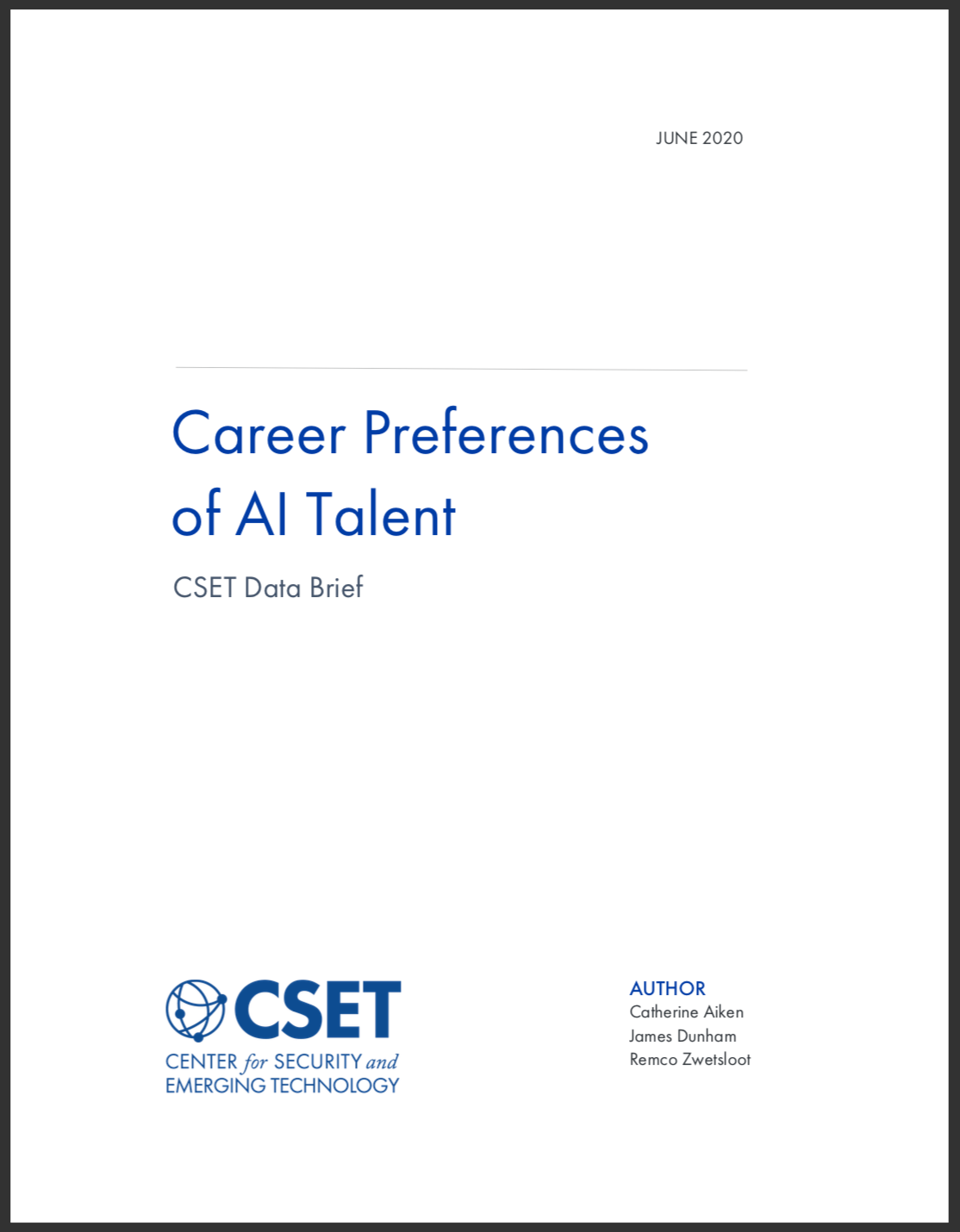Executive Summary
As AI becomes increasingly important to the U.S. economy and national security apparatus, understanding the career preferences of AI talent is critical. AI talent is in high global demand and short supply, and the United States faces increased international competition for top talent. A better understanding of career preferences can offer the United States an advantage in talent recruitment and retention.
To explore the career preferences of AI talent, we surveyed recent PhD graduates from top-ranking AI universities in the United States. The survey was completed by 254 U.S. AI PhD graduates; they were a representative sample in terms of gender, nationality, and current country of employment.
Results indicate that:
- AI PhDs choose to study in the United States for the high quality of education and future job opportunities. Quality of education was a top reason to choose a U.S. PhD program for 82 percent of respondents, while 48 percent indicated future job opportunities as a top reason.
- AI PhDs tend to stay in the United States to work in U.S. academia and industry. After PhD completion, 80 percent of respondents planned on entering a career in U.S. academia and 60 percent in the U.S. private sector; 76 percent currently hold an academic or private sector job in the United States. In terms of future jobs, 75 percent would consider a job in academia, 68 percent a job with a large company, and 31 percent a job in government.
- AI PhDs are drawn to careers by the growth opportunities, professional culture, technical challenges, and research ownership they offer—areas where public sector jobs lack appeal. Between 64 and 70 percent of respondents said these factors were extremely important to them when considering a job. For each of these factors, respondents rate government jobs as less attractive than academia and the private sector.
- There are some significant differences between the career preferences of U.S. citizen PhDs and international PhDs. Location, family and friends, colleagues, and the ability to have a positive social impact are more frequent considerations among U.S. citizen PhDs while salary and immigration concerns are more frequent considerations among international PhDs.1
